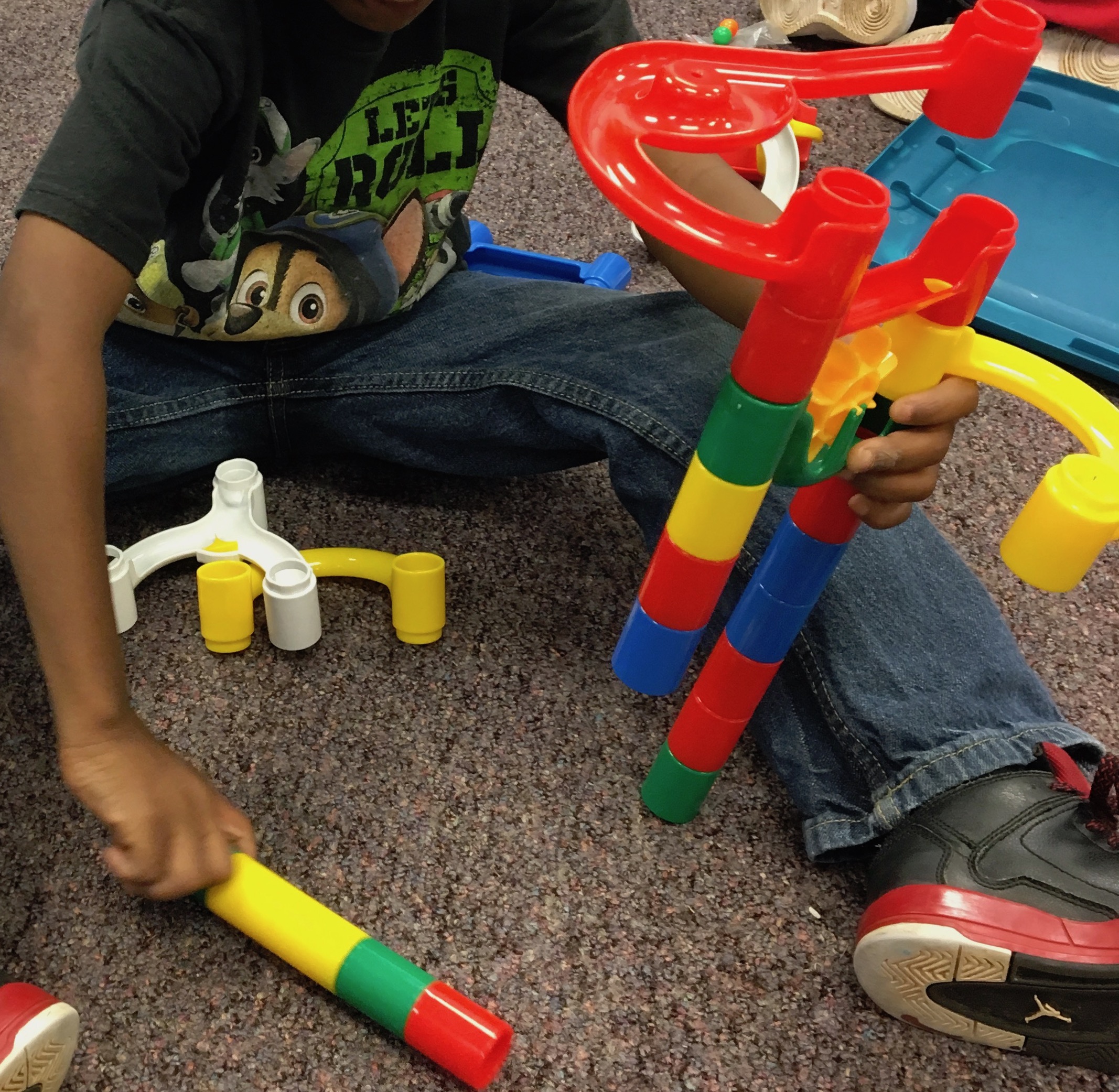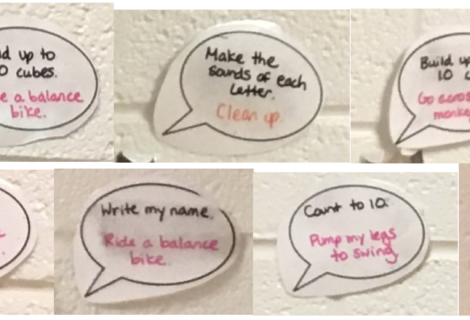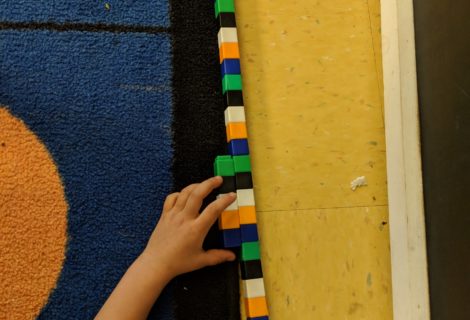Passion Projects, Choice Challenges, & Genius Hour
People of all ages are naturally curious: “Why…?” “How does that work?” “Will that always work?” “What if…?”
In play and in work, children naturally ask these questions and attempt to answer them. These are in-the-moment, naturally occurring goals.
And yet, in school, we have required standards, unit topics, and learning intentions. So how do we protect time for our students to work toward these naturally-occurring goals? How do we foster their natural curiosity and independent thinking as problem solvers within the contexts that interest them?
In our previous post, Noticing an In-the-Moment Small Group Goal: The Carpet Train, we shared how a play-based goal became a math goal. Alisha (1) noticed her students’ question and their goal, (2) found the connection between their work and the required math content of patterns, and (3) collaborated with her math specialist to extend their question and goal into meaningful math problem solving for the whole class.
But what if we notice students’ in-the-moment goals and they do not align with our agenda for their learning? How do we allow students to pursue these naturally-occurring goals anyway?
One answer is creating a weekly time called Passion Projects, Choice Challenges, or Genius Hour.
What are Passion Projects, Choice Challenges, and Genius Hour?
Passion Projects, Choice Challenges, or Genius Hour is a protected time each week where students work on a project of their choice for thirty minutes to one hour. This project stems from a naturally-occurring goal that may not align with required standards or unit topics.
Each student poses a question and designs a plan for answering that question within a topic that s/he is passionate about. Students can collaborate or work independently. Teachers can offer options for students who are not sure where to start. Teachers confer with students to identify a question, design a plan for answering, and set deadlines for progress.
Teachers can provide materials and students can bring in materials from home.
While students work, teachers confer to learn about their process and product. Teachers may teach an in-the-moment or planned mini-lesson that will help individuals or small groups of students move forward with their project.
What might Passion Projects, Choice Challenges, or Genius Hour look like?
In one fourth grade class, time for Passion Projects is reserved for the last forty-five minutes of school on Fridays. Students’ self-identified Passion Projects have included:
- designing and building a dollhouse,
- designing and building a marble run,
- designing and building a puppet theatre followed by writing and performing puppet shows,
- researching and practicing to beat Kids’ Guinness World Records (http://kids.guinnessworldrecords.com/),
- designing and building musical instruments followed by writing and performing songs, and
- researching and writing a book about multiplying fractions.
The teacher also offered choices with mini-lessons that fit her interests and her students’, including stop-action film and animation, bee bot coding, and book trailer creation.
In one third grade class, students could add questions to the Question Box any time during the week. These questions were then shared to inspire Genius Hour work.
We are trying our own version of Passion Projects, Choice Challenges, or Genius Hour through Exploration Boxes. One morning each week, our “morning work” is to choose an Exploration Box and spend time exploring what is inside. Students can work independently or collaboratively with a box. Each box has a variety of materials to explore, often inspired by something we noticed our students were interested in, talking about, wondering about, etc. Each week, students can choose to return to the same Exploration Box or choose a different one. Here are the contents of some of our Exploration Boxes:
- flashlights, mirrors, and prisms
- magnets, magnetic objects, and nonmagnetic objects
- magnifying glasses, rocks, gems, minerals, and “fossils”
- newton’s cradle
- tubes, marbles, balls, and matchbox cars
- finger puppets
- sieves, funnels, rice, and beans
- nesting dolls
- 3D shape sorter
- spirograph
- rubbing plates, crayons, different textures/types of paper
- liquid motion bubblers
We have a running list of Questions and Discoveries based on the Exploration Boxes. Students can share their questions and discoveries during Morning Meeting.
Where can I learn more about setting up Passion Projects, Choice Challenges, or Genius Hour?
- Bring JOY to the Classroom with Passion Projects: Five Steps to Enhance Learning in the Classroom: https://creativeeducator.tech4learning.com/2016/articles/passion-projects
- Choice Challenges & Passion Projects: http://choiceschool.org/programs/choice-challenge-passions-projects/
- @geniushour: https://twitter.com/geniushour?ref_src=twsrc%5Egoogle%7Ctwcamp%5Eserp%7Ctwgr%5Eauthor
- What is Genius Hour? https://geniushour.com/what-is-genius-hour/
- 6 Principles of Genius Hour In the Classroom: https://www.teachthought.com/learning/6-principles-of-genius-hour-in-the-classroom/
- Learning Through Academic Choice by Responsive Classroom: https://www.responsiveclassroom.org/academic-choice/
Want to share what you or someone you know is doing with Passion Projects, Choice Challenges, or Genius Hour?
Email us at mathplusliteracy@gmail.com.


